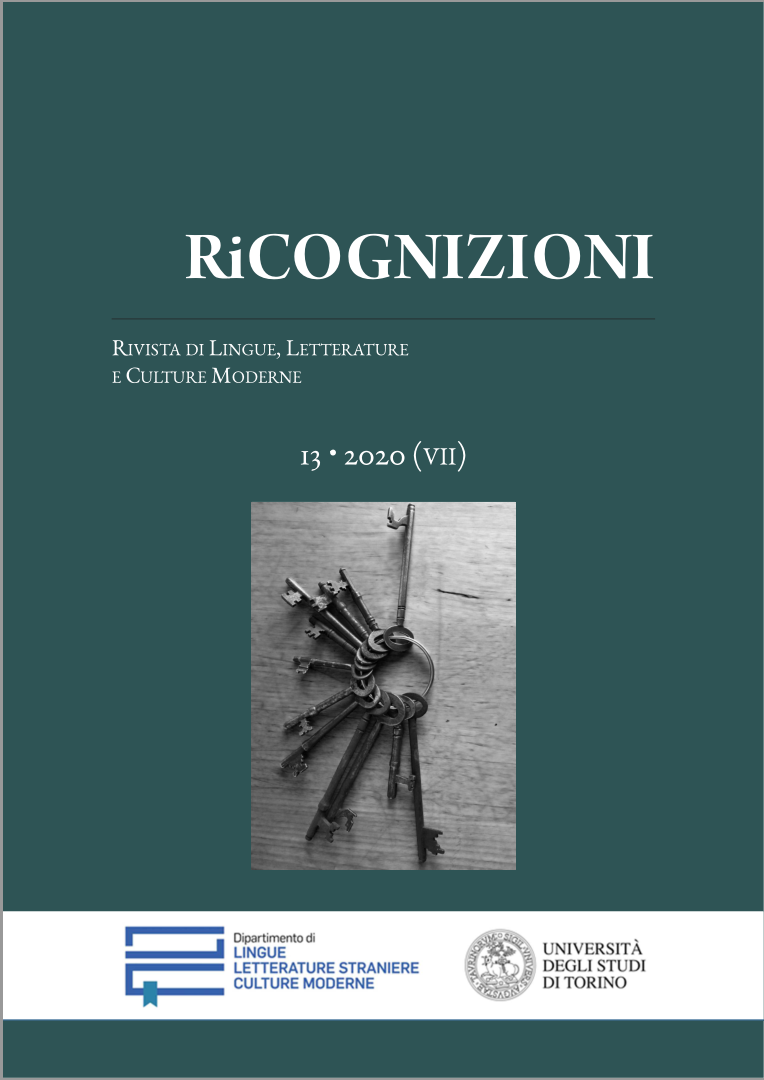Salónica / Thessaloniki: Memory and Italian-Sephardic Identity in Flora Molcho
DOI:
https://doi.org/10.13135/2384-8987/4239Abstract
Based on the analysis of the memoir Anámnesis (2014) by the writer and translator Flora Molcho, we intend to reflect on two aspects of the Sephardic community of Thessaloniki. On the one hand, Molcho’s family memories allow her to focus on the debate on historical memory, already very developed in Spain in regard to civil war and Franco’s regime, but perhaps still insufficient in regard to the recent memory of Eastern Sephardic communities, dragged before by Nazism and then by the Greek civil war. On the other hand, the narrative of Molcho allows us to reason once again on the identity issue of the Oriental Sephardic communities, but from a perhaps original perspective, that is to say, the author's double membership of both the linguistic community of origin (at the same time, Judeo-Spanish and Greek) as well as adoption (the Italian).
With this essay, we intend to offer new elements about the cultural heritage of the Sephardic community of Thessaloniki in our contemporary era, through the mediation of the literary language that Flora Molcho uses in her work.
Downloads
Published
How to Cite
Issue
Section
License
RiCognizioni is published under a Creative Commons Attribution 4.0 International License.
With the licence CC-BY, authors retain the copyright, allowing anyone to download, reuse, re-print, modify, distribute and/or copy their contribution. The work must be properly attributed to its author.
It is not necessary to ask further permissions both to author or journal board.








